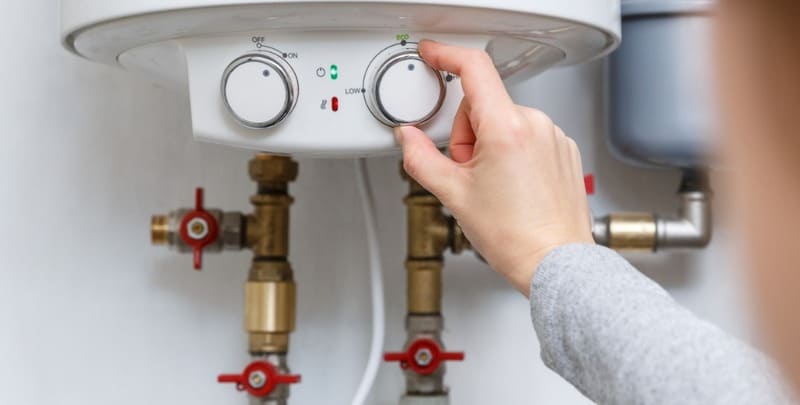
Gas Hot Water: The Pros and Cons
Gas hot water systems are one of the most popular options for reliable hot water in Australian homes. They offer many features and benefits that will appeal to many homeowners. However, that doesn’t mean it’s the right hot water system for everyone.
Let’s have a close look at the pros and cons of the gas hot water system.
Gas Hot Water System Pros
From energy efficiency to cost effectiveness, this heating method offers many advantages. Let’s explore them further.
Gas Hot Water is Cheaper Than Electric Hot Water Systems
One of the most cost-effective ways to supply hot water to your home is with a natural gas or bottled gas hot water system. Only solar hot water systems and heat pump-powered units are cheaper in terms of running costs and energy consumption.
Modern systems offer great energy efficiency too, regardless of whether you choose gas storage (where the heated water is stored in a tank) or continuous flow units (water passes through a heat exchanger when needed).
Instantaneous Gas Hot Water Systems are Compact
Continuous flow hot water systems have no tank, which makes them easy to install in almost any home. Not only are they compact, but most modern continuous flow systems feature a sleek, contemporary design that effortlessly complements your home.
They’re Long-lasting and Durable
Tankless hot water systems are fantastically tough and durable. A properly installed and well-maintained continuous flow system will supply you and your family with hot water for 20 years or more.
Quality, modern systems are built to withstand our tough Australian conditions. They’ll function just as well on a winter morning as in the sweltering heat of an Aussie summer.
Never Run Out of Hot Water
Despite Australia’s warm climate, Australians love their long, hot showers and baths. If you and your family fall into this category, then an instantaneous hot water system is the way to go. Why? Well, it simply means you’ll never run out of hot water again.
As long as you have a functioning cold water mains supply feeding your water heater, your water heater will keep on warming your H2O whenever you turn on the hot water tap.
Versatility
Another huge benefit is that you have a diverse range of options to choose from. Whether you go for instant or storage, LPG or natural gas, indoor or outdoor models, you can be sure that you’ll get years of trouble-free hot water service for your home.

Gas Hot Water System Cons
The perfect hot water system doesn’t exist, just as there’s no such thing as the perfect person or car.
When choosing your hot water system, consider what’s most important to you, and trade that off against the perceived cons. Let’s have a look at them.
The System Can Be More Expensive to Buy
A tankless gas system is usually more expensive to purchase than an electric or storage gas system. That being said, the difference in price between tankless and storage is usually small. Initial cost is obviously an important factor when considering which gas burner system you want for your home.
However, it is also important to remember that a gas water heater will generally be much cheaper and energy efficient to run than an electric option once you’ve installed it.
You Might Require Multiple Units
Modern instant hot water systems are designed to efficiently heat water in the typical average demand household. But that doesn’t mean they are a suitable one-size-fits-all option. For larger homes with more than two bathrooms, you may need more than one hot water unit.
For example, if your home needs hot water in two or more bathrooms at the same time as in the laundry and kitchen, you’ll likely need a second gas hot water unit. It’s best to speak to your plumber who can advise you on the best option in this scenario.
Size May Matter
We’ve explained just how compact instant hot water systems are. However, the flipside is that gas storage hot water systems can be big and chunky. Of course, if you have ample space for hot water outlets, then that won’t necessarily be an issue for you.
But it is prudent to remember that something like a 200l standing hot water tank is going to take up a considerable amount of space. As an example, the Aquamax N/G 50C hot water system – which boasts a 155l storage tank – is around 1.6m tall, 52cm wide and 61cm deep.
It’s certainly not a Goliath but it probably will be noticeable in a smaller yard, without the implementation of some clever landscaping.
Contact The Hot Water System Specialists
Interested in learning more about hot water systems? We have Hot Water Systems: The Complete Guide to help you out. It explains everything from electric hot water heaters to solar hot water system options as well as gas powered water heaters.
Please note: This information is provided for advice purposes only. Regulations differ from state to state, so please consult your local authorities or an industry professional before proceeding with any work. See our Terms & Conditions here.
Published: 2020-06-18

















